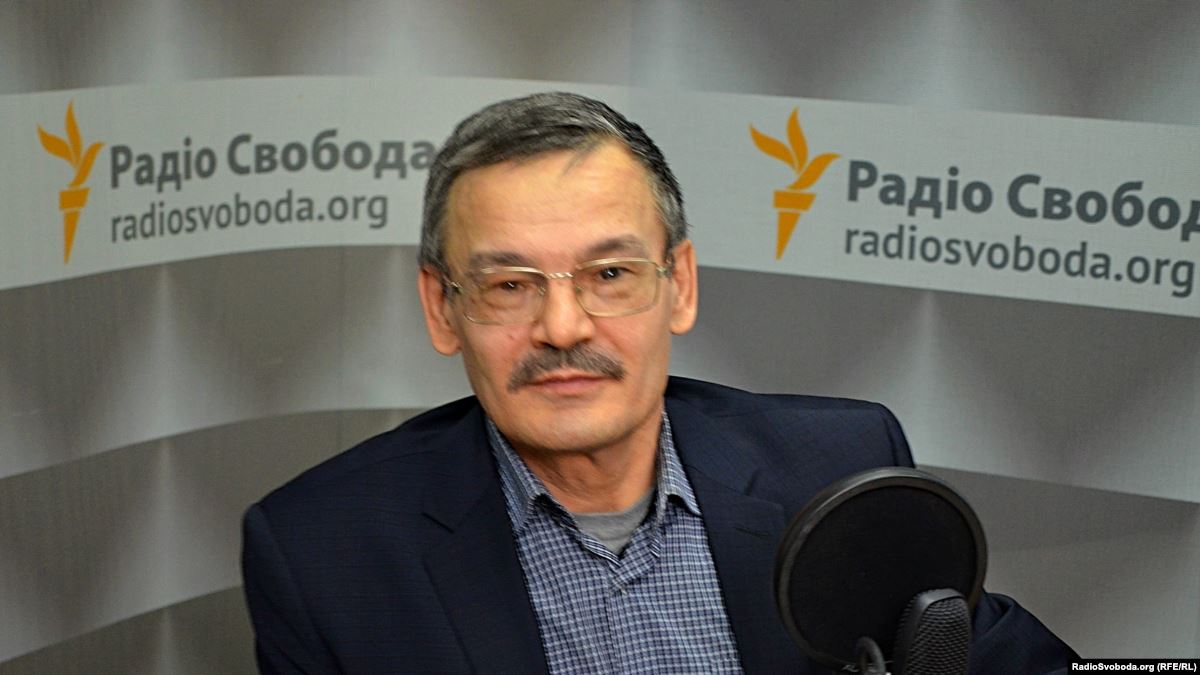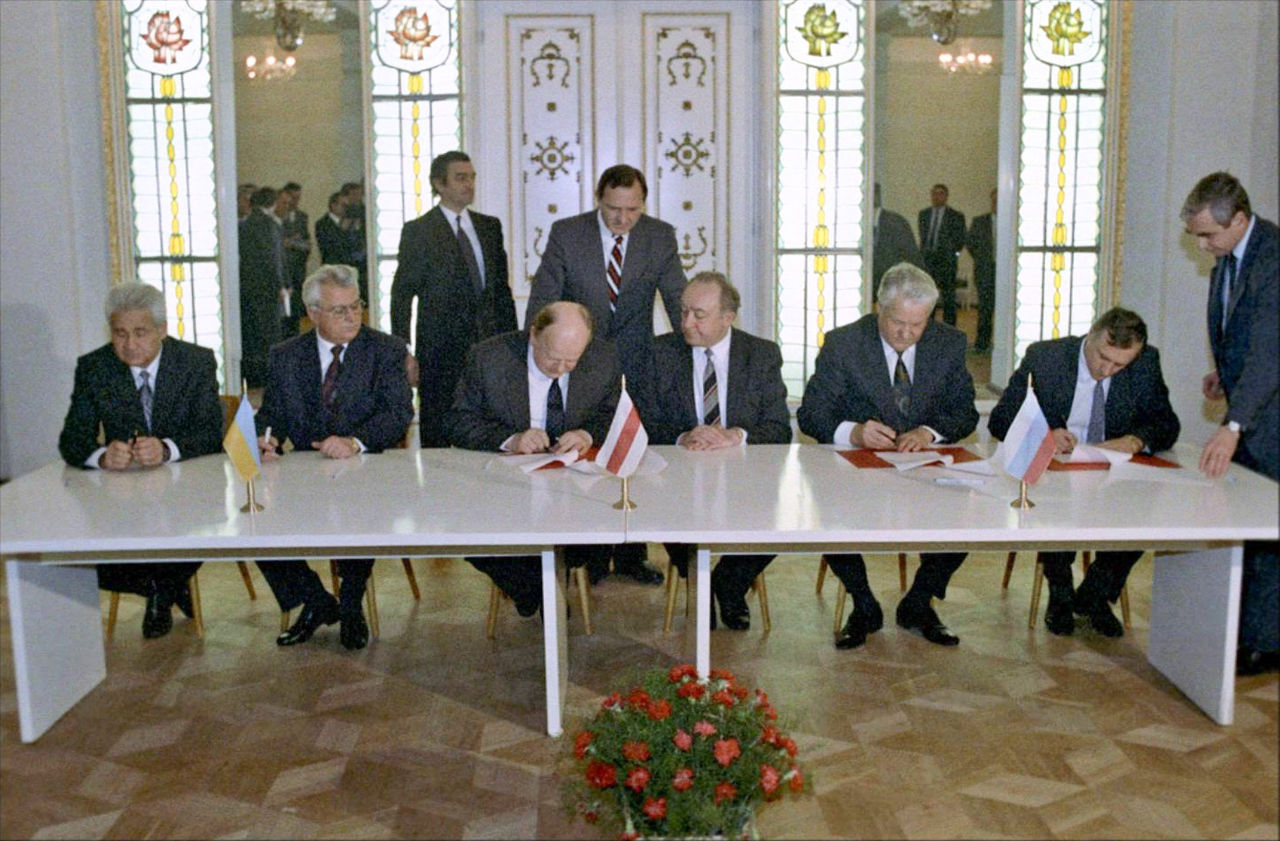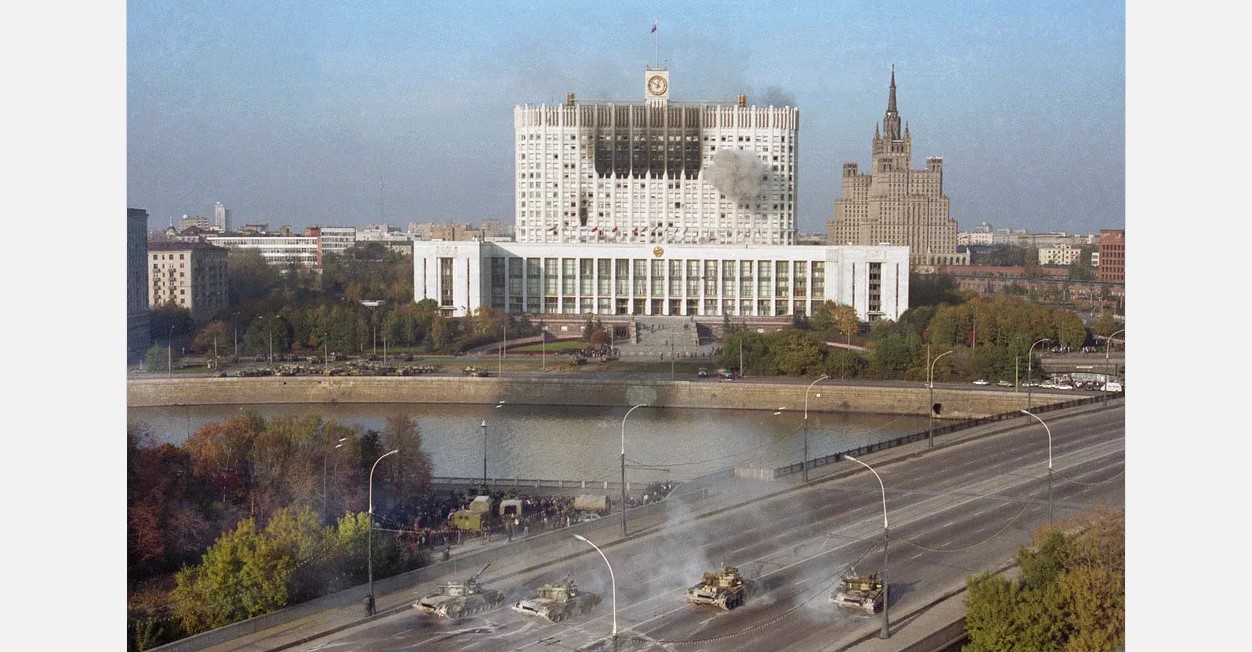Rafis Kashapov, the deputy prime minister of the Tatarstan government in exile, a member of the presidium of the All-Tatar Social Center (VTOTs) and a co-founder of the Free Idel-Ural movement, argues that the struggle against the Muscovite empire is harder now than it was in Soviet times.
That reflects both the unprecedented centralization of the Muscovite empire, the absence of genuine political opposition in Russia, and the unwillingness now of many countries in the West to stand up for their principles in the way that they did before the fall of communism and that helped make that possible.
A translation of his statement follows:
“The Russian Federation is centralized as never before in its modern history. Its repressive apparatus works harshly and effectively. In such conditions the struggle for the freedom of particular republics and even the struggle for human rights is dangerous.
“Present-day Russia often is compared with the Soviet Union. On the one hand, the USSR was a more closed off and more totalitarian state that contemporary Russia. But on the other, the US and the countries of Western Europe in post-war times demonstrated a clear attachment to definite values – freedom, human rights, and human dignity. Namely these values are the foundation of the political systems of democratic states.”
“Today, the fundamental concern for Europe is the well-being of its citizens, that is, voters. The history of the construction of Nord Stream-2 and the return of Russia to PACE shows that the West is putting its values up for auction.
“As a result, in this sense, the national movements in the Russian Federation are in a far more complicated situation than was the case in Soviet times. The leaders of France, Germany, Hungary and even Estonia are ready to meet with Putin and have some sort of arrangements with him. War and human rights are fine, but business is business. This logic has now become the dominant one.
“I consider that namely the EU and the US represent the guarantors of the territorial integrity of the by Russian Federation. They are afraid of the coming apart of this empire, they are afraid of possible instability on enormous parts of Eurasia. Therefore, it is simpler for them to close their eyes to the illegality and repression than to take steps to isolate Russia.
“Having left the Russian Federation after three years of imprisonment, I understand that political emigres who are saving themselves by flight from Moscow are extremely inconvenient for European governments. We literally are the voice of conscience which it is inconvenient to list to. Therefore now, the disintegration of Russia is impossible. The West will now allow it.
“However, this does not mean that the situation will not be changed. Of course, our concentration camp is not eternal. The empire rests on petro-dollars and the loyal attitudes of Europe and the United States. As soon as one of these components disappears, a new 1991 is inevitable.
“It is difficult to say [how long this will take]. Europe is experiencing difficult times; the US also. There is a naïve believe that the Russian Federation can be an ally of the West in restraining China. I do not believe this.
“Russia is an extension of China. The real opponent of China in the Russian Federation are the non-Russian peoples and regions. Why? Because we understand very well that Moscow doesn’t think about us and about our interests. Moscow is ready today to sell the land of Chuvashia to Chinese investors because this is profitable just now.
“For Moscow, this is only a business deal, but for the Chuvash it is a national catastrophe.”
“As for the oppressed peoples, I think that the problem is not that some are known and others aren’t but that [people in the West] don’t want to know about us. We are an unwelcome headache. It is inconvenient to think that in 2019, someone burns himself to death in Europe to try to attract the attention of the civilized world to the problems of forced assimilation.
“It is especially inconvenient to think about this if you are doing deals with Putin and understand what contemporary Russia is, a country where there is spreading the smell of the burned flesh of an Udmurt scholar who did not see any other way to protest what is taking place. And this is not just an issue for the Udmurts.
“Our public movement, Free Idel-Ural, unites representatives of such nations as the Erzya, the Moksha, the Mari, the Udmurts, the Chuvash, the Tatars, and the Bashkirs. We fight for the realization by these nations of their lawful rights, political, civil, national, economic and religious.
“But it is not only in the Idel-Ural region where nations exist which have their own interests. For example, the North Caucasus is a separate world, a complex world of a multitude of nations: the Chechens, the Ingush, the Avars, the Circassians, the Kumyks and so on. Yes, the North Caucasus is a region of the Russian Federation, but only on the map.
“Some of these nations are fighting for the right to self-determination. Others are trying to save their language and culture. What do we have in common? We are colonies of a single empire.
[Their common demands include] the restoration of the constitutions of the national republics which were adopted in the early 1990s. That is, the restoration of our sovereignty, of the change to independently carry out our foreign and domestic policies and the rejection of the imperial policy of assimilation and the imposition of Russian identity on the representatives of the indigenous peoples. [All of them want] equalization of rights with the Russians, not nominally but in reality. For example, my people, the Tatars, for many years has been seeking to open a Tatar University. We want that Moscow end the ban on the functioning of Tatar, Chuvash, Bashkir and other nationalities political parties. We have our own interests which are different from the interests of the Russian community and we have the right to defend these interests.“We want to have out representatives in the organs of power. We are tired of being second-class people. But in Russia, believe me, if you refuse to accept Russian national identity and formally defend your national ego, then for you, all possibilities for advancement are closed.
[In the longer term] those who want to act on their right to self-determination must have the right too do so. Those who want to remain with Moscow, let them remain. It is possible that an Italian or any other European reader will associate my words with the situation in Spain but forgive me, respected gentlemen, Moscow is not Madrid.“I am a veteran of the Tatar national movement and have passed through not only prisons but have suffered punitive psychiatry. If a dialogue with political elites in Madrid is possible, in a concentration camp it is difficult to have such conversations when your head is put in a plastic bag. And these are not simply bold words: Russia is a cruel despotic power which persecutes and kills its opponents.
“What does anyone have in mind when speaking about ‘political forces’ in Russia? The opposition struggling for power? No, the Russian opposition is controlled. It imitates a struggle. What is horrible is not that it plays the role of the opposition and seeks to take part in ‘elections.’ No, what is horrible is something else: it is just as imperialist as the present-day Russian powers that be.
“To sum up: I do not believe people who are struggling for the right to choose the camp administration by democratic means. Precisely that is what the so-called Russian opposition is struggling for: the restoration of the concentration camp.
“Please understand that Russia is the way it is not because Putin is ruling it but because it is an empire. Another Russia would simply fall apart. No democratic Republic would hold Tatarstan, Chechnya, Ingushetia, Daghestan and the other colonies.
“But the West does not want to understand this. Europe and the US try to explain to us that the disintegration of Russia would be a catastrophe and therefore they propose ‘a compromise’ – you allow yourselves to be raped but raped on a regular schedule. This is supposedly better than the horrible unknown that would follow if the concentration camp fell apart.
[The countries which escaped from the empire in 1991] can play a role. But up to now, they are more inclined to believe in the possibility of reaching an agreement with Moscow than in the need to oppose it. If for Georgia and Ukraine, the presence or absence of the will to resist Russia is a question of the loss of new territories, for those of us [within the current borders of the Russian Federation] it is a question of our disappearance as nations.”Read More:
- Non-Russians inside Russia more important allies of West than is the opposition there, Verkhovna Rada leader says
- West and Ukraine must learn lessons of Bush’s ‘Chicken Kiev’ speech, Podobed says
- Moscow hides its effort to weaken larger non-Russian nations by playing up its support for smaller ones
- Protesters at Moscow consulate in Kharkiv demand freedom for captive nations in Russia
- Moscow sanctions Ukrainian parliamentarian who called for defense of rights of Middle Volga nations
- Free Idel-Ural Movement takes shape in Kyiv
- New Siberian website provides data on Russification of non-Russians and repression of Russians
- Warning to Kremlin: Its non-Russians likely to become the Irish of the 21st century
- Russia’s act of genocide against Circassians lasted more than 150 years, Chukhua says






